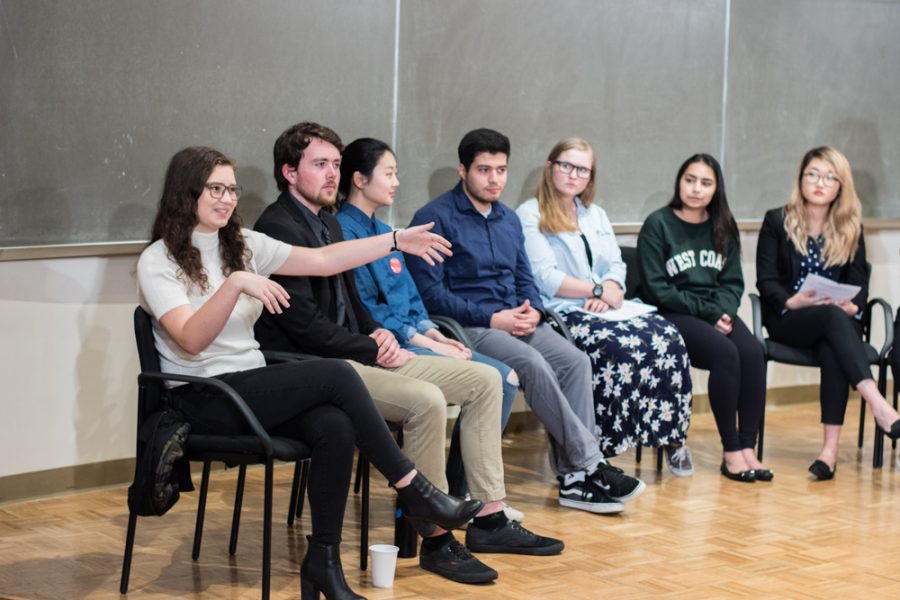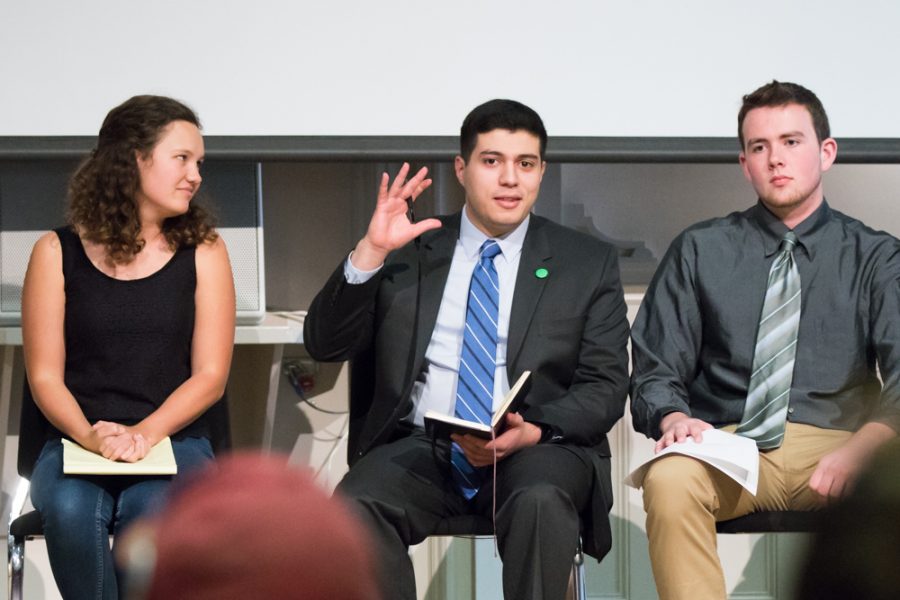ASWC senators voted Sunday night, Nov. 17 to approve a resolution designed to give the administration specific goals in reducing racism on Whitman’s campus.

The resolution directly addresses the issue of institutionalized racism on Whitman’s campus against which a group of at least 225 students and faculty rallied on Nov. 7. The original resolution expressed alarm at underlying racism on campus and called for changes to be made at an institutional and administrative level. ASWC expressed open support for students of color and made a list of demands of the administration.
These demands included a request to cancel classes for one day in the spring in order for students to attend the Power & Privilege Symposium. ASWC asked for a mandatory Race and Ethnicity Workshop in first-years’ sections similar to the Gender and Sexuality Workshop, and the establishment of a Dean of Diversity that would sit on the president’s council. They also requested the inclusion of more texts in the Encounters curriculum that address issues of race.
The resolution was drafted by ASWC’s Student Affairs Committee, with sophomore ASWC Vice-President Jack Percival and junior ASWC President Tim Reed collaborating with the Whitman administration as well.
“This resolution is very symbolic because the rhetoric in the administration is that students need to come to them with issues. Well, this is us addressing issues,” said Percival.
Junior Mcebo Maziya proposed an amendment to the resolution, specifically focused on the language of the resolution.

“It’s important to show in the language of the resolution that students of color are angry and the administration needs to do something about it,” said Maziya. “There is a need to call a spade a spade. We need to utilize diction that accurately articulates the state of affairs on campus. Many a time, as the Whitman community, we are caught up in the need to be respectable, whereas in fact, respectability is at the heart of complicity.”
Debate occurred specifically regarding a single word amendment in one clause of the resolution: “ASWC impels all students to speak out against racism wherever it may occur…”
“We cannot force students to talk about race because we don’t have the authority to force people to talk about these issues,” said senior senator Kayvon Behroozian in debate. “I don’t want to delegitimize the authority of [ASWC] by using a word that we cannot enforce.”
He and other senators suggested other options for language, including “compel” and “strongly urge.”

Debate lasted for more than an hour, with observers showing signs of restlessness and frustration.
“I find it to be little bit ridiculous as an observer because the goal of the resolution is to represent the constituents, and it ultimately should be about what the constituents want,” said sophomore Black Student Union co-president Ali Price. “On that same token, we do want to see a very strong condemnation, and the words do play a part in that. So if we water down –– try to white-wash this language, we’re not actually effecting the change we want to have happen.”
The issue of the word “impel” specifically affected the vote of first-year senator Mitchell Cutter. He chose to object to the resolution, which prevented it being voted in by acclamation, or unanimous senator support. Acclamation is a symbolic way of showing support for a resolution, which was lost for Resolution 13.4 with Cutter’s objection.
“I thought that [the amended clause using ‘impel’] went beyond the duties and the scope of ASWC to command students to do anything,” said Cutter. “It is not the duty of ASWC to impel or command the student body in any way.”

At 10:30 p.m., three-and-a-half hours after the meeting began, senators put the resolution to a role-call vote, and it passed with a 17-1-1 majority. The resolution has been distributed to President George Bridges, as well as the Whitman Board of Trustees, the Board of Overseers, the deans of the school and several professors, including the Director of Encounters and Associate Professor of English Gaurav Majumdar. It will be left to those recipients to decide what happens next.
“In regards to word choice, I think the people this resolution affects will be the ones nit-picking it and judging it,” said first-year Senator Andrew Rivas. “ASWC needs to decide if we’d be judged for using a word that is too strong or too weak.”








